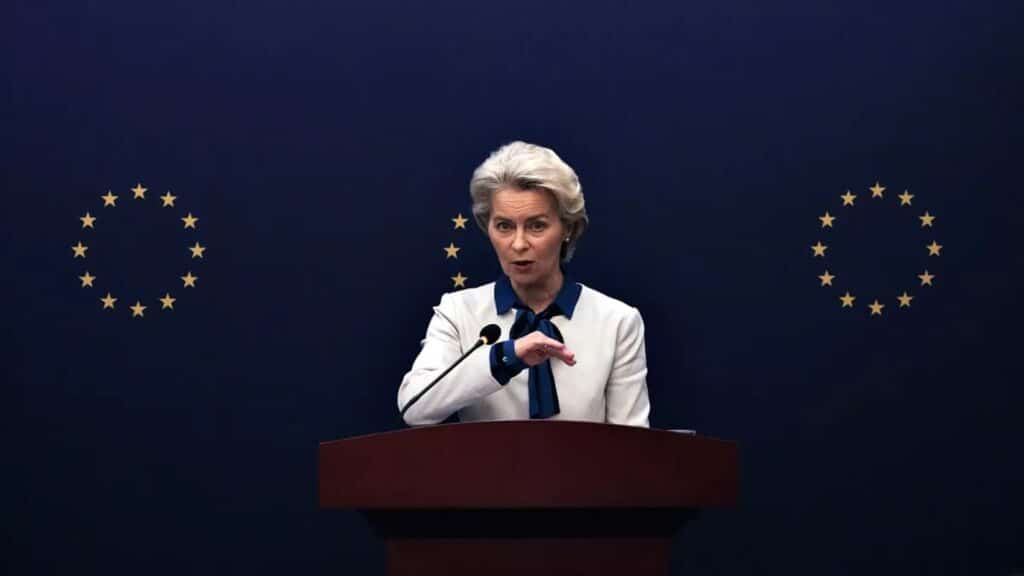Ursula von der Leyen is often celebrated as the most transformative president of the European Commission since Jacques Delors. However, there is a question looming about whether her legacy might have unintended consequences as she seeks re-election.
The German politician is prepared for another five years leading the European Union’s most influential institution. During her tenure, she has significantly influenced the bloc’s policies, a stark contrast from when she was narrowly elected by MEPs in 2019.
Von der Leyen’s presidency began amid widespread protests and strikes across the continent, which brought climate change to the forefront. One of her early significant moves was introducing the European Green Deal, framing it as a pivotal moment comparable to the “man on the moon.”
The Green Deal outlined the binding goal of making the bloc climate-neutral by 2050, a groundbreaking shift for a market rooted in a coal and steel community. Despite facing subsequent crises like the COVID-19 pandemic, irregular migration, and geopolitical challenges, von der Leyen used these crises to strengthen European integration.
She initiated a historic €750-billion recovery fund to revive the bloc’s economy after the pandemic and orchestrated a collective procurement of vaccines to ensure equal access for all member states. In response to Russia’s invasion of Ukraine, she proposed plans to reduce the EU’s reliance on Russian fossil fuels and increase renewable energy deployment.
Von der Leyen’s response to various challenges, including the Israel-Hamas war, garnered international attention, elevating her profile globally. However, internally, her ambitious policies and centralized leadership style faced criticism from Commission staff and diplomatic circles.
Despite challenges, von der Leyen received unanimous backing from her political party, the Christian Democratic Union (CDU) of Germany. Her relationship with European Council President Charles Michel, marked by tensions and public disagreements, added to the complexity of her leadership.
As she confirmed her intention to lead the European Commission for another term, von der Leyen faces scrutiny, particularly regarding her key achievement, the Green Deal. Conservative voices, including those within her own political family, the center-right European People’s Party (EPP), criticize environmental policies for allegedly hindering industrial production and creating excessive bureaucracy.
The upcoming June elections are expected to further scrutinize her legacy, with debates over the Green Deal, environmental policies, and potential challenges in her second term. The dynamics between von der Leyen and her critics within the EU will likely continue to shape her political future.
